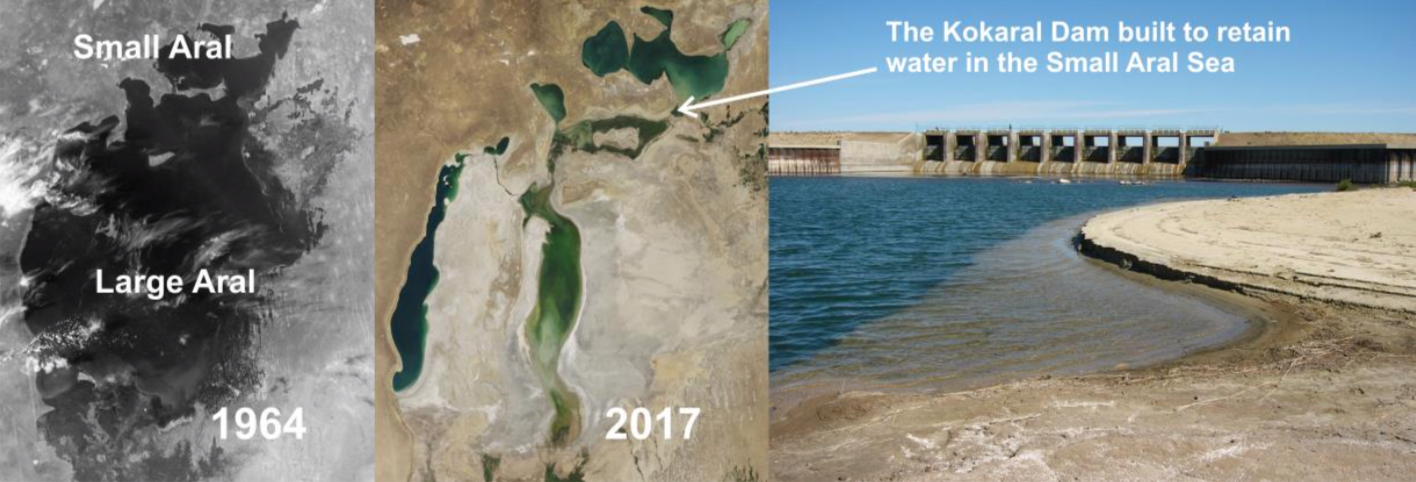Universitetsavisen
Nørregade 10
1165 København K
Tlf: 21 17 95 65 (man-fre kl. 9-15)
E-mail: uni-avis@adm.ku.dk
Foredrag
Foredrag — Talk by dr. Nikolay Vasilevich Aladin from Russia about 'Unsolved problems of the Aral Sea', hosted by the Danish Naturl History Society.
Date & Time:
Place:
Torsdag d. 7/2 kl. 19.00, Universitetsparken 15, Bygning 1, Auditorium A, 2100 København Ø
Hosted by:
Dansk naturhistorisk forening
Cost:
Free
FOREDRAG I DANSK NATURHISTORISK FORENING
TALK IN THE DANISH NATURAL HISTORY SOCIETY
Kære medlemmer!
Til årets første foredrag i Dansk Naturhistorisk Forening, har vi fået besøg helt fra Rusland! Vær’ med når Nikolay Vasilevich Aladin (Doctor of Science) giver det spændende foredrag:
Unsolved problems of the Aral Sea, perhaps the worst
environmental disaster of the 20th – 21st centuries
Det foregår: Torsdag d. 7/2 kl. 19.00, Universitetsparken 15, Bygning 1, Auditorium A, 2100 København Ø
BEMÆRK TIDSPUNKTET!
Foredraget er på engelsk.
——————————————————–
Welcome all!
The first talk in DNF is coming all the way from Russia. Join us when Nikolay Vasilevich Aladin (Doctor of Science) gives the exciting talk:
Unsolved problems of the Aral Sea, perhaps the worst
environmental disaster of the 20th – 21st centuries
It will take place: Thursday d. 7/2 kl. 19.00, Universitetsparken 15, Bygning 1, Auditorium A, 2100 København Ø
The talk is in english
——————————————————–
Abstract:
The Aral Sea is located in central Asia and had originally a surface area equal to Lake Victoria in Africa. The Aral Sea receives the rivers Amu Darya and Syr Darya, but more than 50 years ago both were diverted to irrigation and as a consequence of this the Aral Sea began to shallow and salt out. At present there remains less than 25% of its original surface area and less than 20% of its volume. The increasing salinity led to the death of many fish and invertebrate species. In order to at least partially preserve the biological resources, a large program of salt-resistant organisms, an initiative on “measurements for indigenous improvement of environmental and sanitary development in the Aral Sea area” was adopted, but never materialized due to the 1991 collapse of the USSR. Newly independent countries of Central Asia created in 1993 the International Fund for the saving of the Aral Sea and have since then solved many crucial problems of conservation and rehabilitation of the Aral Sea. The main success was the construction of the Kokaral dam between the Large and Small Aral, which led to immediate and significant positive changes for both fisheries and the general local environment. But many problems still remain as summed up by the presidents of Turkmenistan, Kazakhstan, Kyrgyzstan, Tajikistan and Uzbekistan at the 2018 meeting of the foundation. Today local people and the Kazakhstan Government are discussing the idea to improve the Kokaral dike and also the building of two more dams, all of which will serve to contain inflowing water and thus locally increase the area of what remains of the Aral Sea, especially the northernmost Small Aral Sea.
In our opinion, the largest unsolved problem is the shallow-water reservoirs in the Amu Darya delta, where the water quickly evaporates but could be saved if directed towards the previous deep-water Western Large Aral Sea. The major part of the Large Aral Sea is unfortunately now an impossible task, but reestablishment of small parts such as the Small Aral Sea can and already have led to very significant improvements for both the environment in general and the economy of the local population. We continue to work for the rehabilitation of the Aral Sea, a both scientifically and politically very difficult task. For this to succeed we need both honest, dedicated people and broad international cooperation.
